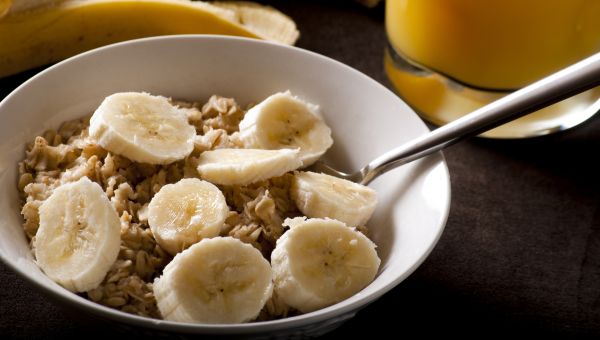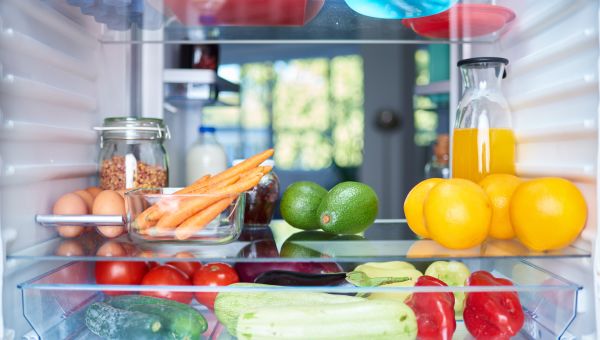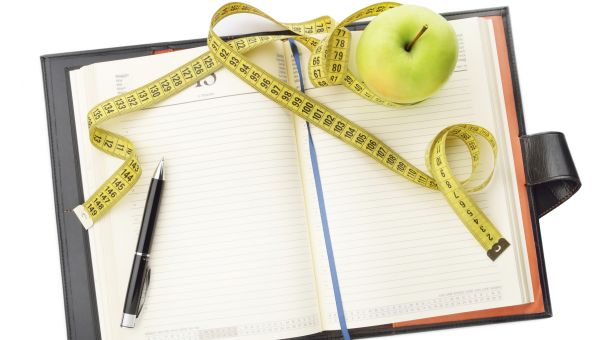8 ways to lose weight and improve cholesterol
Losing weight can improve your cholesterol levels and help prevent heart problems.
Updated on May 27, 2022

Did you know that being overweight tends to increase your cholesterol? Having a higher percentage of body fat—especially around your waistline—can raise levels of LDL (“bad” cholesterol) and triglycerides, and lower levels of good-for-you HDL cholesterol. The good news is that losing weight may improve your cholesterol numbers, which can help you prevent heart problems down the road. Sound like a win-win? Keep reading for simple ideas on how to lose weight to benefit your health.

Eat Foods You Love
Managing your weight doesn’t necessarily mean you have to deprive yourself of delicious foods. Instead, start by lightening up the foods you already love. To lower your cholesterol, the American Heart Association recommends getting no more than 6 percent of your total daily calories from saturated fat. That’s between 11 to 13 grams, based on a 2,000 calorie per day diet. Choose lean cuts of meat and consider swapping whole-fat dairy for low-fat versions.

Don't Skip Breakfast
Breakfast may be the most important meal for losing weight and keeping it off. The key is to practice portion control and focus on lean protein and fiber. Both are filling and help regulate your appetite so you're less prone to cravings and overeating later in the day. Fiber-rich whole grains (like oatmeal) and protein-rich nuts are good choices; both may also help lower your cholesterol.

Manage Stress
When you’re stressed, it can be tempting to seek out comfort foods (think chocolate ice cream or French fries) that can sidetrack healthy eating. Stress also makes your body release cortisol, a fight-or-flight hormone that can increase your appetite and trigger cravings for carbs and foods that are high in fat and sugar—just the types of foods that can make you gain weight and throw your cholesterol numbers off.
If you’re having a craving, stop and think: Is it really hunger? Or could it be stress? There are lots of healthy ways you can manage stress, like taking a quick walk outside or giving yourself a timeout to close your eyes breathe.

Seek Health-Minded Friends
Hanging out with people with not-so-healthy lifestyle habits can make it harder for you to stick to your weight loss plan. Spending time with friends who share your healthy goals—especially around mealtime—can help you eat more healthfully and manage your weight.
That doesn't mean you should ditch your other friends altogether. Just make sure to foster friendships with folks who can help support positive changes in your life, like exercising regularly and eating whole foods.

Restock Your Kitchen
Check around your kitchen for items likely to sabotage your weight-loss plans. Some of the main culprits include unhealthy snack foods like potato chips and cookies, and packaged foods like frozen pizza. You can satisfy your appetite just as deliciously by tossing out such temptations and restocking your kitchen with healthier fare. Eating whole foods and healthier snacks like nuts or pre-chopped veggies can keep you fuller for longer, and may improve your cholesterol levels.

Sleep Well
It might sound like a contradiction in terms but getting more (or better-quality) sleep can help with your weight-loss efforts. That's because sleeping less than six to eight hours each night can slow down your metabolism, crank up your appetite, and make you too weary to exercise. You can try many different techniques to improve your sleep hygiene.

Get Moving
When you have high cholesterol, exercise offers several benefits. It burns calories, which helps with weight loss. Even better, it boosts HDL ("good" cholesterol) and lowers LDL ("bad" cholesterol) and triglycerides. Work regular activity into your day, including a mix of aerobic exercise and some strength training. Doing everyday chores, such as cleaning the house or mowing the lawn, count, too.

Keep a Journal
Want more motivation to lose weight? Keep track of your progress. Studies have shown that keeping a food journal can help you successfully lose weight. This is an affordable, quick way to help keep yourself on track and reach your weight-loss goals.
You can use a paper and pen journal to write down what you ate, the calories you consumed, and how you felt. Or you can use technology to help you reach your goals. The Sharecare app, available for Android and iOS, helps you record the size and quality of your meals. Tracking what you eat can help you spot danger zones in your days and make better choices tomorrow.

American Heart Association. The skinny on fats. Last reviewed November 11, 2020.
Chao AM, Jastreboff AM, White MA, Grilo CM, Sinha R. Stress, cortisol, and other appetite-related hormones: Prospective prediction of 6-month changes in food cravings and weight. Obesity (Silver Spring). 2017 Apr;25(4):713-720.
Robertson MC, Raber M, Liao Y, et al. Patterns of self-monitoring technology use and weight loss in people with overweight or obesity. Transl Behav Med. 2021;11(8):1537-1547.
More On


video

article

slideshow


video


video
